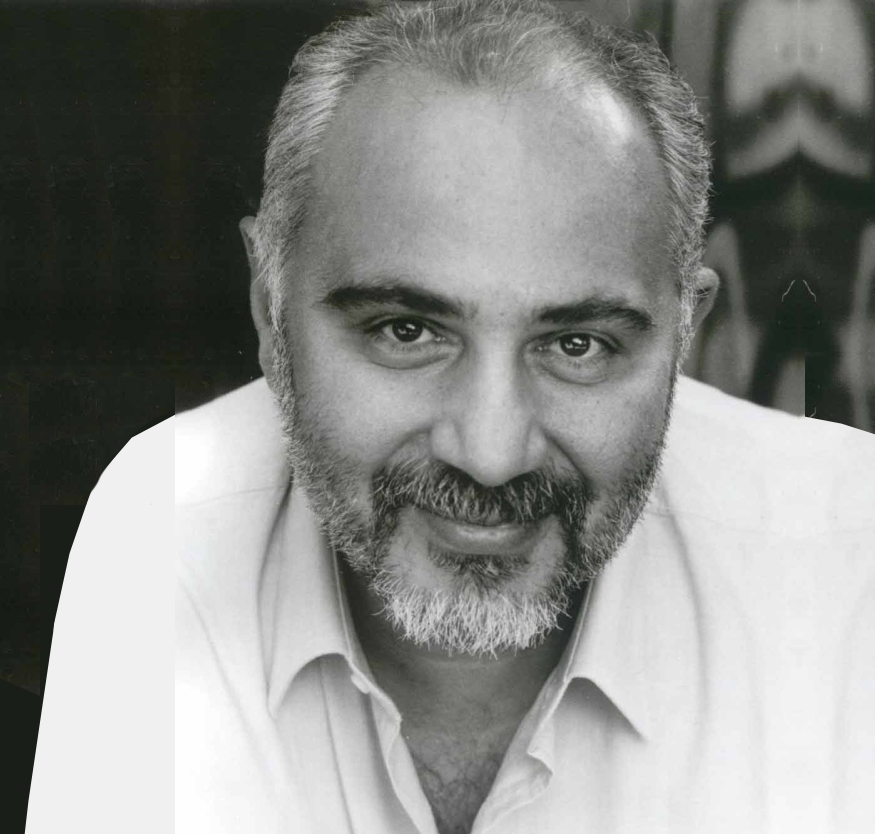C’è stato un momento preciso che ti ha ispirato a diventare regista? Forse un spettacolo o una interpretazione in particolare?
Si, è stato nel gennaio del 1997. Chiesi ad alcuni attori e attrici di affrontare insieme un lavoro di ricerca e di prove sul testo “Qualcuno volò sul nido del Cuculo”. Dopo aver letto il romanzo e visto l’omonimo film, avevo scritto l’adattamento teatrale e dopo diversi mesi di prove lo spettacolo debuttò ad Ottobre dello stesso anno con successo ed è stato replicato molte volte negli anni seguenti.
Was there a moment that made you want to become a director? A particular production or performance?
Yes, it was in January of 1997. I asked some actors and actresses to tackle a research and rehearsal project on the text ‘One Flew over the Cuckoo’s Nest’. After having read the book and seen the eponymous film I’d written a theatrical adaptation and after several months of rehearsals the show debuted successfully in October of the same year, and has been repeated many times in following years.
Perché hai scelto il mondo del teatro invece del cinema o la tv?
Perché nel teatro tutto è immediato. Non c’è nessun filtro tra l’attore e il pubblico. Nel momento preciso dell’evento teatrale si crea una sintonia “viva” tra attore e pubblico che è impossibile da ricreare sia nel cinema che in tv. Inoltre lo spettacolo teatrale è un’esperienza unica ed irripetibile ad ogni replica e che trasforma nel tempo gli stessi attori e regista che vi lavorano.
Why theatre instead of film or TV?
Because in theatre everything is immediate. There is no filter between the actor and the audience. In the precise moment of the theatrical performance you create a “live” synthesis between actor and audience that is impossible to recreate in either film or TV. In addition, a theatre show is a unique experience each performance which continually transforms the actors and the director.
Nella tua esperienza, è necessario per un regista aver lavorato prima come attore?
Per me sì. Intendiamoci, esistono bravissimi registi che non sono mai stati attori e sono dei veri geni nel dirigere. Però nella mia esperienza è fondamentale essere anche un attore. Primo, perché qualsiasi richiesta io possa fare ad un attore so perfettamente che grande lavoro lui dovrà fare per metterla in atto e quindi so anche fin dove spingerlo. Secondo, perché per me è importantissimo ai fini della riuscita dello spettacolo, il lavoro creativo dell’attore. Per me il lavoro del regista non è “imporre” una direzione di lavoro all’attore, ma invece insieme a lui fare un percorso creativo condividendo anche punti di vista differenti. Ovviamente l’ultima parola e responsabilità della messa in scena dello spettacolo spettano al regista.
In your experience, is it necessary for a director to have worked first as an actor?
For me yes. Let’s be clear, there are excellent directors who have never been actors and are true geniuses of their craft. However in my experience it’s fundamental to also be an actor. Firstly because for each demand I make on an actor I understand perfectly what a large task it will be for them to put it in action and so I know in which direction to push them. Secondly, because for me the creative work of the actor is incredibly important to the final success of the show. For me the work isn’t “imposing” a rigid direction of work for the actor, but instead following a creative path alongside them and sharing different points of view. Obviously the final word and responsibility of the show’s performance is expected from the director.
Secondo te, quali sono le caratteristiche del teatro italiano, che forse il teatro inglese non riesce a offire? Credi che sia possibile separare lo spettacolo italiano dai temi politici?
Mi risulta difficile “catalogare” i due teatri inglese ed italiano, poiché sono così ampi che spesso possiamo trovare punti di contatto tra loro come anche grandi differenze. Una di queste può essere a mio avviso che il teatro inglese è spesso un teatro “di parola” dove appunto la drammaturgia si basa fortemente sull’ascolto della potenza evocatrice della parola e dei dialoghi. Il teatro italiano invece è anche un teatro “del gesto” dove appunto la gestualità del corpo dell’attore è altrettanto e forse più potente della parola stessa.
Nel teatro italiano l’aspetto politico è quasi sempre presente, anche se non dichiarato esplicitamente. Ed in fondo il teatro ha sempre avuto un forte valore politico direttamente o indirettamente. Comunque esistono bellissimi esempi di teatro italiano non propriamente poltico e dal carattere molto “intimista”.
In your view what are the characteristics of Italian theatre which English theatre can’t offer? Do you believe that it is possible to separate Italian theatre from political themes?
I find it difficult to “catalogue” English and Italian theatre, as it’s such a broad topic that often we can find points of contact between them as well as great differences. In my opinion one of these could be that English theatre is often one of “speech” where the dramaturgy is strongly based on listening to the evocative power of words and dialogues. Italian theatre instead is also a theatre of “gesture” where the actions and gestures of the actors’ body is as important as the spoken word, if not more so.
In Italian theatre the political dimension is almost always present, even if there is no explicit declaration. Deep down theatre has always had a strong political quality directly or indirectly. Regardless there exist wonderful examples of Italian theatre which are not truly political, of a more “intimist” character.
Nella tua carriera, quale è stata la tua relazione con i critici?
Alcune volte mi sono dispiaciuto perché la mia regia non era stata apprezzata, altre volte sono stato felice nel vedere che le mie intuizioni registiche erano state viste e sottolineate positivamente. Nel tempo però ho imparato a vedere in ogni critica un differente punto di vista e a coglierne gli spunti costruttivi. In ogni caso il mio critico privilegiato sarà sempre il pubblico.
In your career, what has been your relationship with critics?
Some times I’ve been unhappy because my directing wasn’t appreciated, other times I was happy to see my directing intuitions had been noticed and picked out positively. Over time however I’ve learned to see in each criticism a different point of view and seize constructive points. In any case my most favoured critic will always be the audience.
Infine, ci puoi dare qualche idea dei tuoi ultimi progetti, oppure spettacoli che hai in mente per il futuro?
Nei miei progetti futuri ci sono senz’altro “Morte accidentale di un anarchico” di Dario Fo; “Così è (se vi pare)” di Luigi Pirandello; “La mandragola” di Niccolò Machiavelli; “Il gabbiano” di Anton Cechov; “Il linguaggio della montagna” di Harold Pinter.
Finally, could you give us some idea as to your current projects, or shows you would like to put on in the future?
In my future projects there will be without a doubt ‘Accidental Death of an Anarchist’ by Dario Fo; ‘Right You Are (if you think so)’ by Luigi Pirandello; ‘The Mandrake’ by Niccolò Machiavelli; ‘The Seagull’ by Anton Chekhov and ‘Mountain Language’ by Harold Pinter.
by Victor Rees, 2 September 2017

